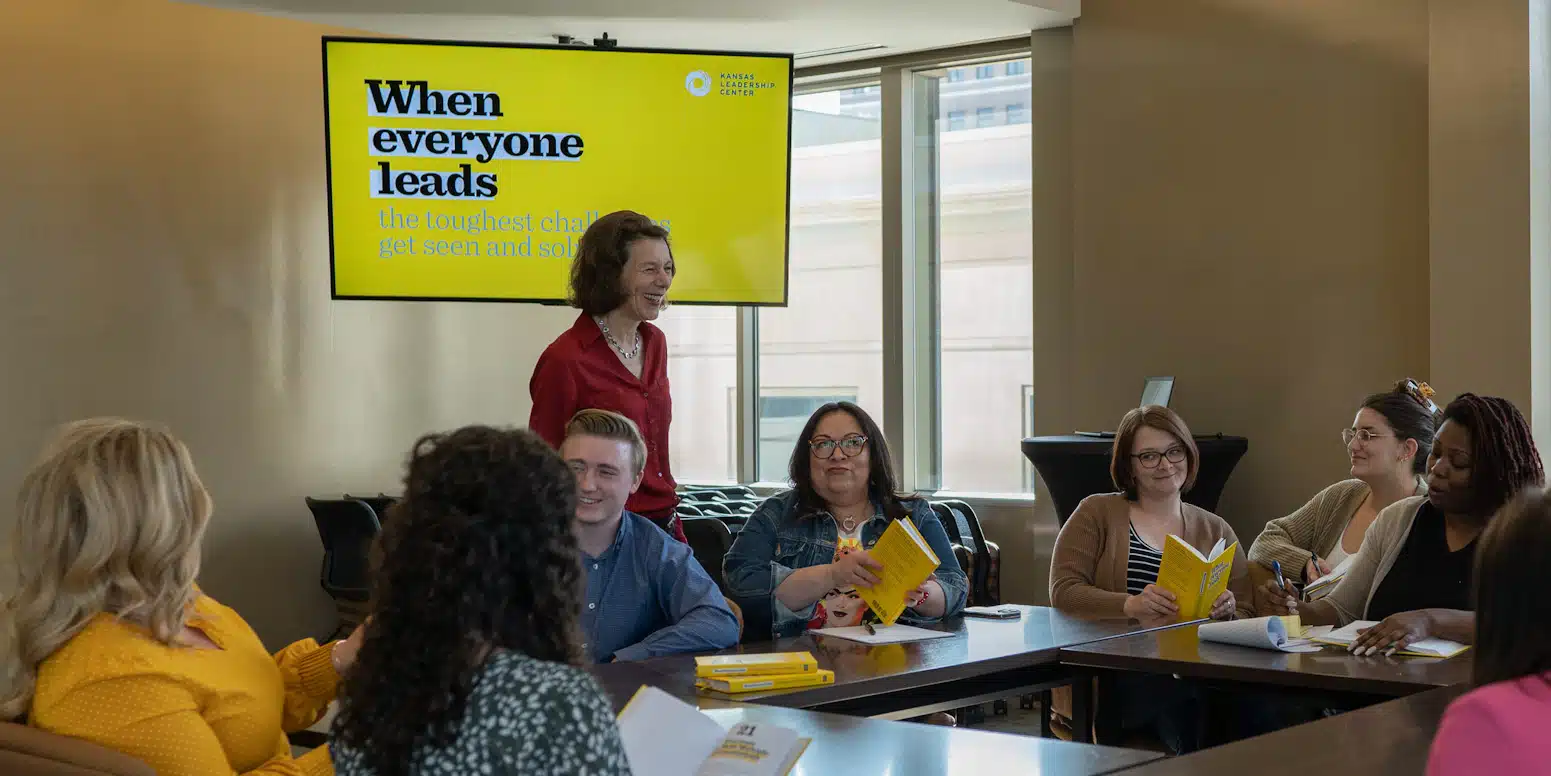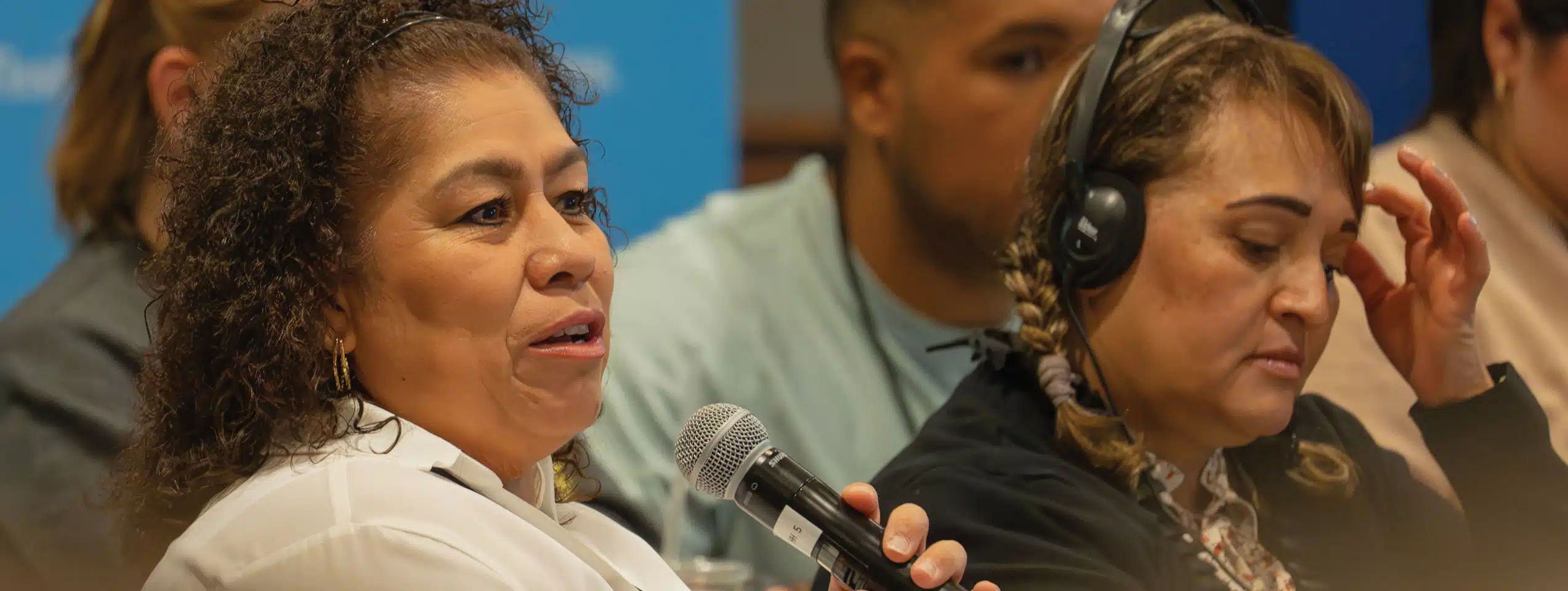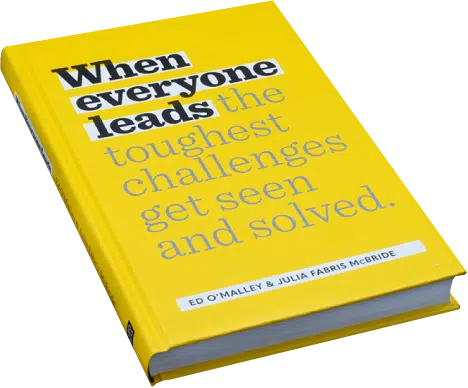In the rural corners of Kansas, agricultural research and extension services are a consistent source of trusted information to communities and farmers. It’s no surprise then, that those groups, and their junior version, 4-H, have stepped up to take action in response to the pandemic.
Leaders with those organizations have embraced the Kansas Beats the Virus campaign, a partnership between the Kansas Leadership Center and the state of Kansas.
In doing so, rural communities hit upon several important themes, including providing leadership opportunities for youth as well as the power that personal local experiences have on driving home the importance of adhering to public-health practices. These convenings also hit on strategies to talk about the virus in communities where there is still doubt about its prevalence and severity.
Down in the southeast corner of the state, extension agent Frances Graves took the campaign as a call to bring together community leaders over a four-county region.
Over the course of four virtual meetings, 4-H youth leaders, public school teachers, administrators, parents, church leaders and business leaders from Wilson, Montgomery, Labette and Crawford counties discussed how best to handle the local response to the pandemic.
“We were hoping that by creating these groups that were bound to a similar purpose or identity, then we could have some really good conversations,” Graves said.
Graves said that the themes that emerged from these meetings included the need for more local stories. “People needed to share more of how the virus personally affected them,” she said.
On target
Local solutions were exactly what the Kansas Beats the Virus campaign aimed to spur. The campaign convened approximately 850 meetings in December, and KLC has distributed nearly $800,000 in grants to help many of these ideas take root.
One of those grantees was the Barber County extension office, where extension agents Justin Goodno and Robin Eubank-Callis held small virtual meetings with ministers and health care workers.
“From that, we decided we would record some testimonials, people who had COVID-19,” said Goodno. They planned to use the KLC grant money for professional editing.
Testimonials were not hard to find, Goodno himself was one of the first in the county to get sick with COVID. And everyone who attended the first meeting had contracted the virus. “It wasn’t too tough to have a discussion on COVID-19 with that group,” he said.
Once testimonials are recorded, Goodno said they’ll put them on the extension YouTube page, and in their email newsletter. They’re not trying to scare people. Testimonials will include people who might have had a rough experience with the virus and others who were asymptomatic and only discovered they had the virus when someone around them picked it up.
Goodno believes this more neutral approach to sharing COVID experiences will not put off people who are skeptical of the virus’s threat. The extension office’s reputation helps.
“One thing about K-State research and extension, we deliver information that hopefully improves the quality of lives of people around us. We’re just presenting the information that we have,” he said. “We’re just trying to find a common place to have a conversation about it, it’s here and as of right now, it’s not going away.”
Meanwhile, 4-H leaders throughout the state have engaged with their communities on how to respond to the virus.
 These young people have in many cases already been trained to facilitate conversations on difficult topics, according to Jaryth Barten, a project coordinator with 4-H. Since those trainings have been forced to go virtual, they’ve been able to engage even more with people around the state.
These young people have in many cases already been trained to facilitate conversations on difficult topics, according to Jaryth Barten, a project coordinator with 4-H. Since those trainings have been forced to go virtual, they’ve been able to engage even more with people around the state.
4-H is a community club that partners with the national cooperative of university extension services to teach hands-on skills to young people. The 4 H’s of 4-H are head, heart, hands and health.
4-H helped convene nearly two dozen Kansas Beats the Virus meetings, said Aliah Mestrovich Seay, K-State’s specialist for 4-H development said.
One outcome of those meetings is the work of the Verde Clover 4-H Club of Riley County. Many in this 4-H group have family members who are frontline workers in retail or service industries. To help those workers, the Verde Clovers are making 100 goodie bags for the frontline workers in the Latinx community, said Mestrovich Seay.
Another 4-H group decided to support seniors in three towns in Rice County by putting together bags with activities, such as word games and puzzles. Through the “adopt-a-grandparent” program they are planning to deliver the packages a couple times this year to help cheer some 100 residents in assisted living facilities.
Teachable moments
Community clubs are places where youths hone leadership and communication skills and learn about citizenship, said Mestrovich Seay, and the Kansas Beats the Virus campaign really fits into those project areas.
“Then you have civic engagement, and you have a vibrant community. And this project has really helped teach youth that they can be agents of change and they can support their community and create a more vibrant community through finding the common good for society,” she said.
Much like the extension agents, 4-H leaders are careful to not put off community members who have differing views on how to handle the virus.
Mestrovich Seay noted that, in many of these conversations, they didn’t even mention COVID because virus talk can be taboo for some, so instead they lead with part of the 4-H pledge, “I pledge my health to better living.”
“And that’s something that we can all agree on,” said Mestrovich Seay. “We all want to help create vibrant, healthy, well communities, and there’s many different ways that our local communities make meaning of that, based on culture that they have. We respect that, we can all agree we want to start out 2021 with wellness in mind.”
One of the first steps to dealing with the pandemic is just allowing people a place to air their frustrations or confusion. Graves noted that several people on the calls mentioned that they just enjoyed being part of a group to determine solutions.
“This was a healthy outlet to talk about solutions and what positive differences can be made.”
Leah Shaffer is a freelance writer based in St. Louis.


